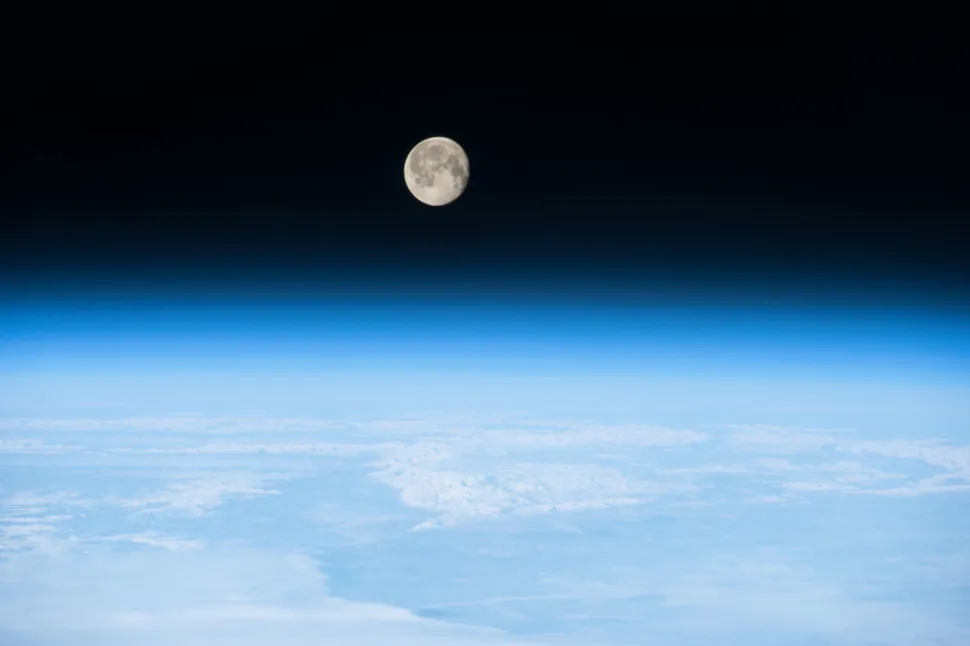Life on Earth: Why We may Have the Moon’s now Defunct Magnetic Field to Thank
This article was originally published at The Conversation. The publication contributed the article to Space.com’s Expert Voices: Op-Ed & Insights.
By Christopher Davies | Associate Professor in Theoretical Geophysics
Jon Mound | University of Leeds, Associate Professor of Geophysics, University of LeedsOCTOBER 26, 2020 | The habitability of a planet depends on many factors. One is the existence of a strong and long-lived magnetic field. These fields are generated thousands of kilometres below the planet’s surface in its liquid core and extend far into space – shielding the atmosphere from harmful solar radiation.
Photo of a nearly full Moon shining brightly on the Earth’s atmosphere, taken from the International Space Station.
(Image: © NASA)Without a strong magnetic field, a planet struggles to hang on to a breathable atmosphere – which is bad news for life as we know it. A new study, published in Science Advances, suggests that the Moon’s now extinct magnetic field may have helped protect our planet’s atmosphere as life was forming around 4 billion years ago.
Today, Earth has a strong global magnetic field that protects the atmosphere and low-orbiting satellites from harsh solar radiation. In contrast, the Moon does not possess either a breathable atmosphere or a global magnetic field.
